Sommaire
- In China: The Mingqian will soon be available
- In India: activity has resumed for a small part of the workforce
- In Japan: production has never stopped
- In Sri Lanka: Problems with transport, but production continues
- In Burkina Faso: Women are at the heart of the fight
- In South Africa: Farmers are economically vulnerable
- We remain vigilant and continue to support the producers!
Health crisis: An update on the situation with our producer-partners

As a result of the global lockdown, spring harvests have been severely disrupted this year. We remain in close contact with our producers to ensure that things run smoothly despite the damaging effects of this health crisis which is no respecter of borders.
The situation is not the same in all the countries we work with. In China, the first early teas (Mingqian) have been harvested and we are already tasting promising samples, while in India, the first-flush harvests were interrupted after only two days before tentatively beginning again.
There have been no reported cases of Covid-19 infection to date among any of the producer teams with whom we work. The fact that small producers are mostly based far from large urban centres naturally limits infection and strict protective measures have been put in place in each country.
Here is a round-up of the situation on a country-by-country basis, based on information recently supplied by our producer partners.
In China: The Mingqian will soon be available
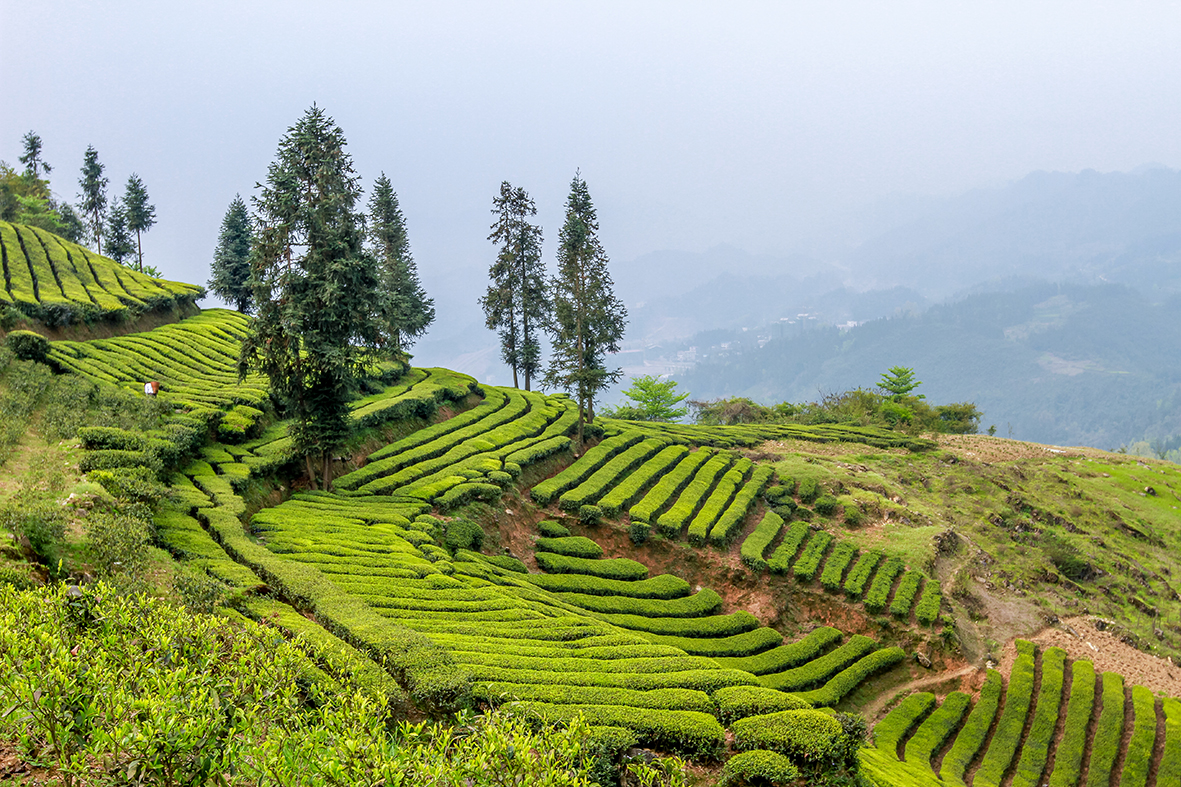
China experienced the peak of the epidemic in February and the situation has largely improved since then. Harvests have gone ahead almost as usual apart from the implementation of safe distancing and other necessary sanitary measures that have been put in place.
Wearing a mask is customary anyway in most Asian countries and these hygiene measures have not fundamentally changed things. The biggest concern was whether they would be able to ship these wonderful Mingqian spring teas to us.
We should soon be able to offer our first Chinese first flushes. Most notably, we have renewed our partnership with the Wuyuan tea school to obtain the exclusive teas made in very small quantities by small producers using traditional methods at the famous school, just as we did last year.
In India: activity has resumed for a small part of the workforce
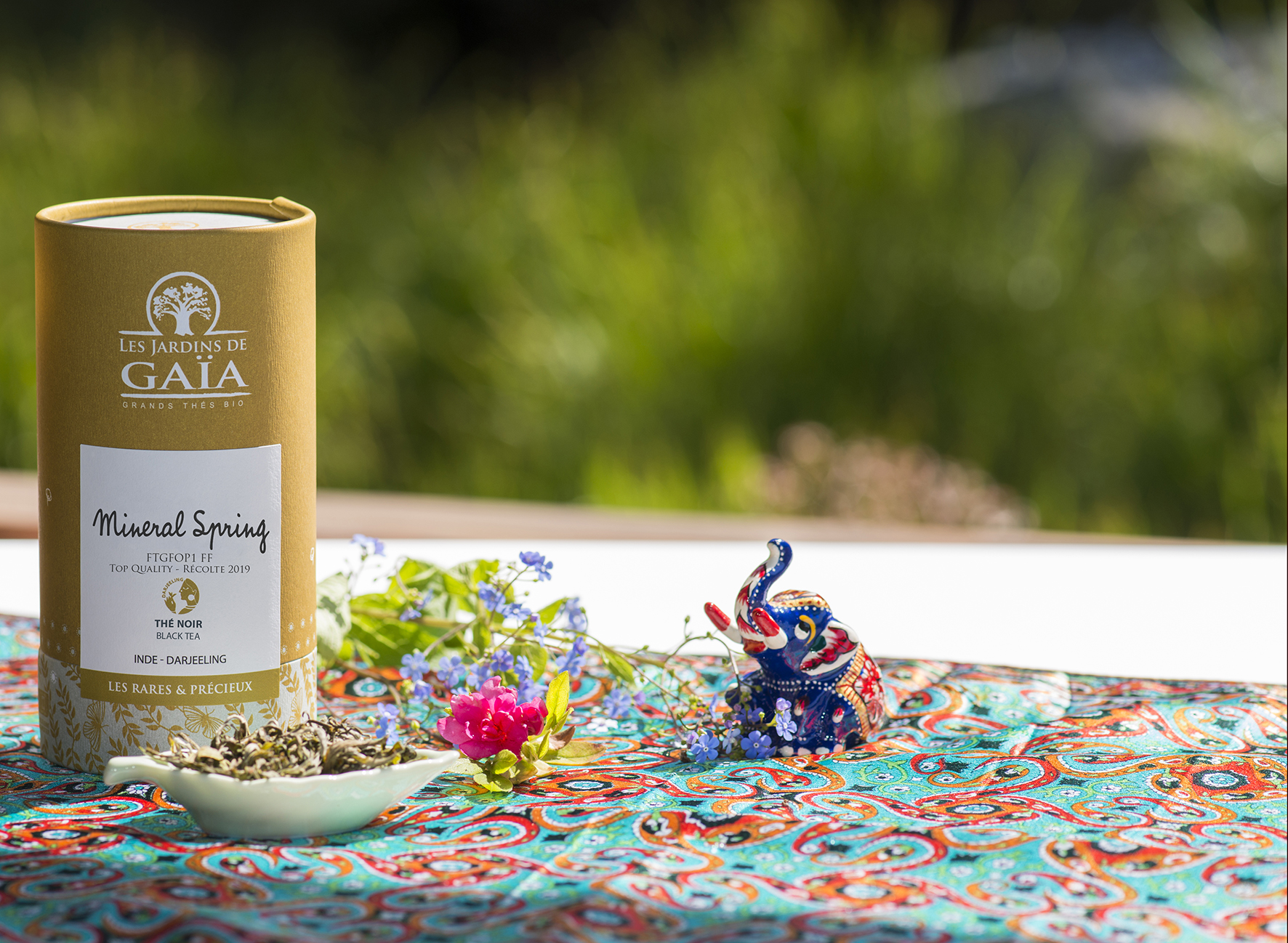
No cases of Covid-19 have been identified among our Indian partners, but half of the early harvest has already been lost as the tea trees had to be abandoned when their buds were ready to be picked. After the tensions and conflict which raged in Darjeeling in 2017, paralysing the activity of the gardens, this is obviously a new blow.
Only two days of picking were possible before the lockdown which began on March 25, and has been extended to May 3. Although at first the tea industry almost ground to a halt in most of the country’s tea regions, the situation now seem to be improving. Activity has resumed for 25% of the workforce in Darjeeling and for 50% of the workforce in Assam and South India. Things could gradually get back to normal by implementing the necessary protective measures for each worker, but for the moment our partners are dependent on the decisions of the individual local administrations.
It is the same for company offices which for the moment remain closed, preventing tea from being exported. So we are waiting to see what happens, but according to our Indian partners, the situation should improve in the coming days. One thing is certain – we will have first flushes from Darjeeling, but we will have to wait.
In the meantime, we have discovered a very interesting first flush tea from Nilgiri (south of India)! We’ll tell you more about that soon.
In Japan: production has never stopped
In Japan, the situation is currently changing very quickly. The lockdown, which mainly affected large cities such as Tokyo and Osaka, was extended to the entire country from April 16 until May 6.
As the harvests are well advanced, we do not yet know what impact this situation will have. We will of course keep you posted.
In Sri Lanka: Problems with transport, but production continues
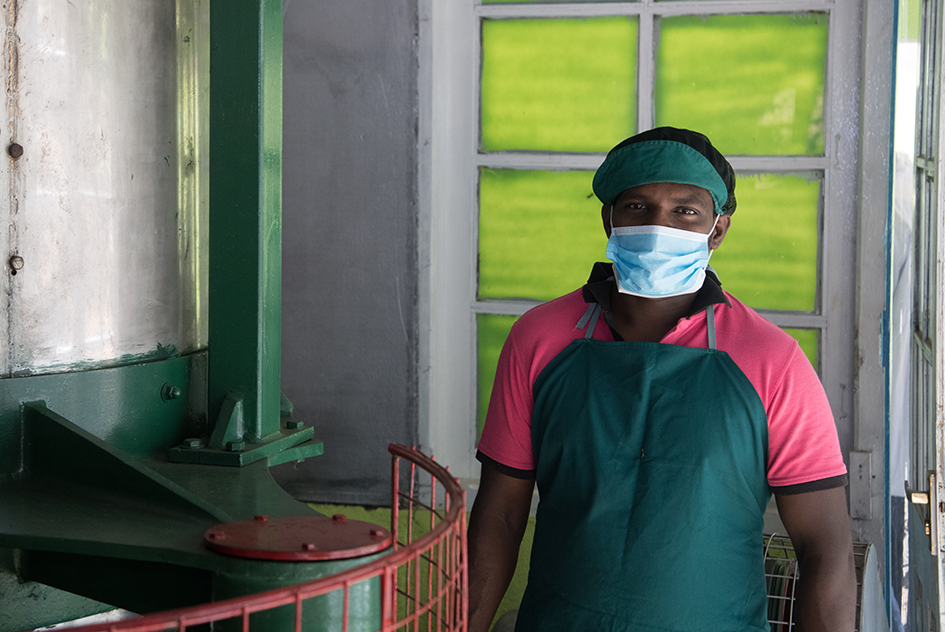
In Sri Lanka, there has been a curfew system in place throughout the country since March 20. In many districts, this curfew is lifted or reinforced depending on the health situation, while in places identified as high risk such as Colombo, Kandy, and Gampaha it is permanently in place.
This has a big effect on the production of teas and spices. However, small producers far from large urban centres continue to harvest normally while respecting the protective measures put in place (these harvests take place all year round on the island).
In the processing plants, the number of workers has dropped sharply and our Sri Lankan partners face many challenges, both in terms of their health and logistics. Various measures have been put in place to protect the health of workers while avoiding any paralysis in what is a crucial sector for the country’s economy.
A free door-to-door transport service (home to factory) has been set up for all workers who are prepared to come to work. In the factories, hygiene conditions are inspected by a new emergency response team made up of managers, a health and safety team, a medical team and a HR team to ensure the safety of workers at all sites which are operational. This team also ensures there is sufficient stock of masks, gloves and disinfectant.
The administrative teams who are working from home are fully functional, but there remains uncertainty in terms of the logistics and transport necessary for shipping the teas and spices we ordered.
In Burkina Faso: Women are at the heart of the fight
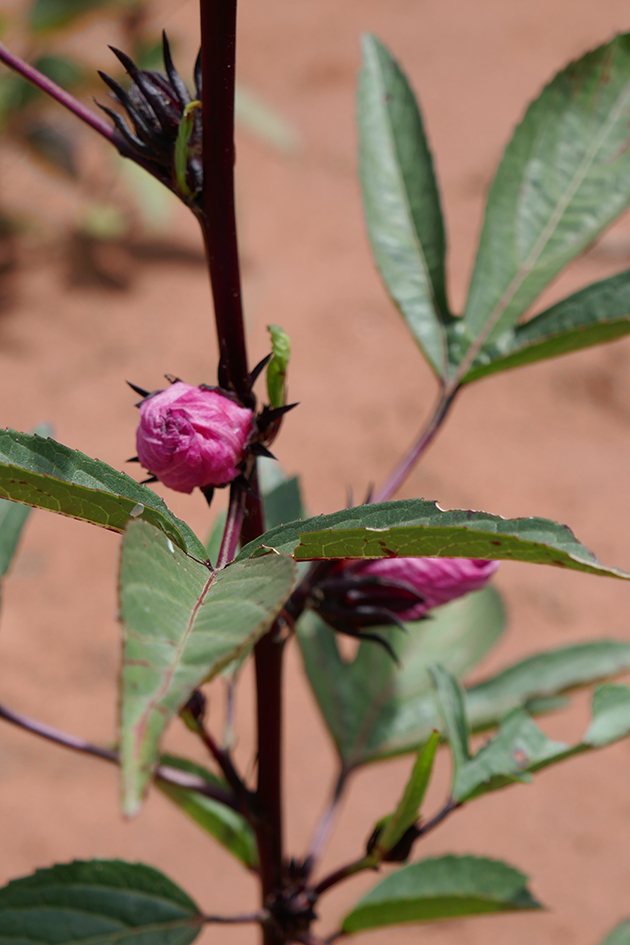
In Burkina Faso, there has been a monitoring committee in place since March 9 to measure, check the progress of the disease and keep the population informed with regular updates.
As the health centres in some villages are very modestly equipped, the situation is closely monitored and every two days the leaders of the cooperative with which we work are called to take stock of the various local situations and respond to the most urgent needs.
The hibiscus harvest has been completed and the mango harvest is underway. Strict measures have been put in place to protect workers, the majority of whom are women. The drying unit is operational with preventive measures, such as raising awareness of systematic hand washing during loading and unloading of the raw material, being applied.
Other preventative measures include taking people’s temperatures in the morning on the way into the drying unit, regular hand washing, wearing a gown and mask and respecting a safe distance of one metre between workers. Someone on site is responsible for ensuring these measures are applied.
In South Africa: Farmers are economically vulnerable
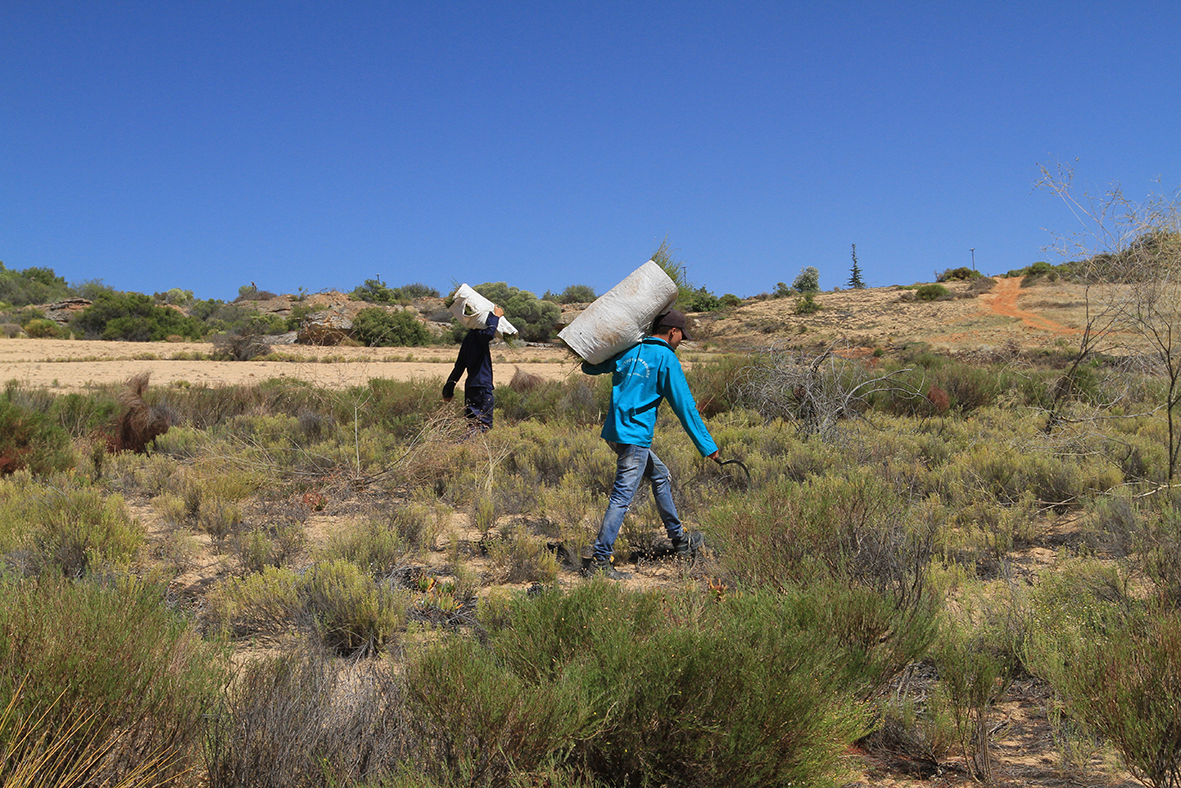
In South Africa, the population is currently confined until April 30. At the rooibos cooperatives we work with, even on the most isolated farms, everything is being done to ensure barrier measures are strictly observed. These communities include many particularly vulnerable elderly people.
The members of the Wupperthal and Heiveld cooperatives have said the situation is not alarming for the moment. Most of the rooibos was harvested before the lockdown measures were announced, which is good news. For Heiveld, the harvests that could not take place will be postponed until September, because winter is coming and the first rains have already arrived.
All work on tea courses has been suspended to protect the health of workers. However, the pasteurisation and packaging steps which are outsourced continue to be carried out normally and transport is continuing and products are being exported.
On the other hand, if the lockdown continues, the members of the cooperatives will have no income. After the harvest season, members usually find work with other employers in the agricultural sector, but under lockdown they are not hiring.
We will keep an eye on this situation which could destabilise our rooibos producers and we may decide to look for ways to support them as we’ve done in the past.
We remain vigilant and continue to support the producers!
So for the moment the situation seems to be more or less under control for all our producer partners and no cases of infection have been reported.
It means we should be able to continue to work hand in hand with them, but at a much slower pace and with many unknowns mainly related to transport.
We should have more information in the coming days. We will be sure to keep you posted on our Facebook page.
Écrit par Les Jardins de Gaïa
Pionniers sur le marché des thés et tisanes bio et équitables, Les Jardins de Gaïa proposent, depuis 1994, des grands crus nature, des classiques et des créations maison originales. Privilégiant les petits producteurs et les récoltes manuelles, ils ont développé au fil des années une gamme généreuse et variée de thés, rooibos et tisanes aux qualités gustatives reconnues, ainsi qu’une gamme d’épices bio et prémiums proposée sous la marque Terra Madre. Tel un jardin épanoui, la force des Jardins de Gaïa tient dans la diversité des terroirs et l’engagement des hommes qui la travaillent…
